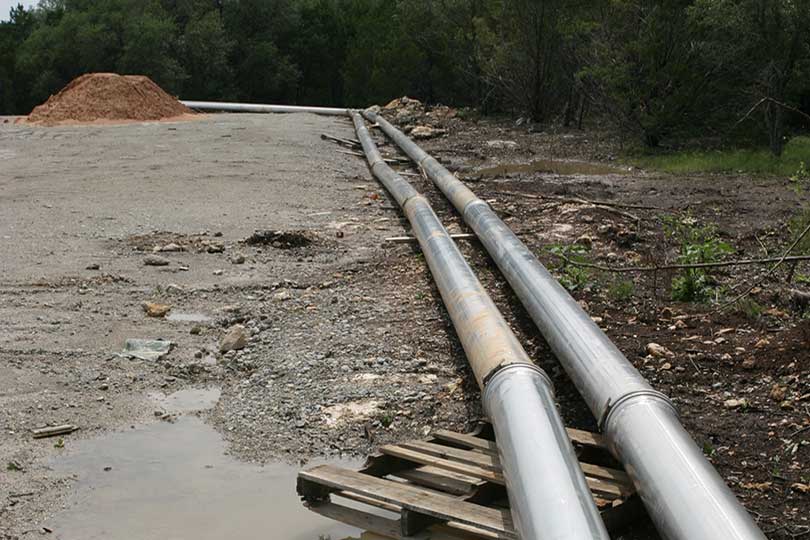By Julie Tomascik
Associate Editor
High stakes negotiations and low-ball offers occur too often during eminent domain proceedings in the Lone Star State. And the current law favors for-profit companies, giving landowners few options in a fight for their property.
But Texas Farm Bureau (TFB) is once again taking a stand for private property rights.
“Landowners feel they’re not getting a fair shake and that their rights are being ignored,” TFB President Russell Boening testified at a recent hearing of the Senate Committee on State Affairs.
To address the issue, Lt. Gov. Dan Patrick charged the committee with studying property owner compensation and the variance between a condemning entity’s offer and the fair market value of the property.
“We feel that one important component of ensuring fair and just compensation is to change the law so that landowners don’t have to finance their own legal fees when a condemnor tries to force them to sell at lower than fair market value,” Boening said.
It’s a deck stacked against them, despite reforms made in previous years.
Under the current law, landowners must pay attorney fees out of pocket, never allowing them to truly be made whole. Low-ball early offers from some condemning entities— pipeline companies, electric utilities, public agencies and others—often discourage landowners from appealing because of those legal fees.
“Condemning entities know in advance what they can get away with, and a single landowner is no match for their experts,” he said.
But in a state with a booming population, roads and other infrastructures are needed. The disputed practice of eminent domain is used when the government or a private entity seizes land for the good of the public.
“We view eminent domain as a necessary evil. Eminent domain should always be used as a last resort,” Boening said. “We need to provide better balance and not allow condemning entities to take advantage in an unequal bargaining process.”
Stronger checks and balances are needed to address this.
But Boening, and other property rights advocates, feel the principal theme of eminent domain should be fairness.
“We think requiring condemnors to pay the costs and fees incurred by landowners in instances of low-ball offers would provide better balance,” he said.
That’s a provision Florida, along with a few other states, has instituted. But critics argue the fee requirement would lead to a flood of litigation, stalling projects and driving up costs.
“We’ve talked to our friends in Florida who passed their attorney fees law in 1995, and they said that they did not see a ‘flood of litigation,’” Boening said. “What they told us they did see was a pristine effect on condemning entities who are now much more careful condemning property, as they must consider what is fair before offering compensation.”
That’s what landowners want—a fair offer and just compensation for private property they’ll never get back.


I think that landowners should get a fair offer and just compensation if their land is being taken. Informative post, thanks for sharing!